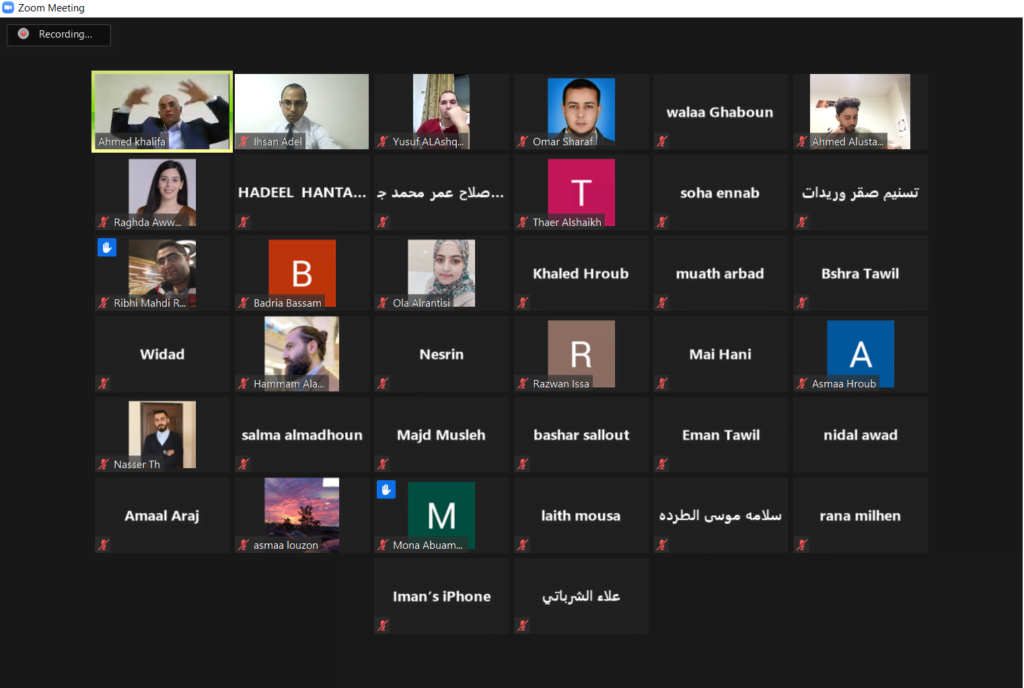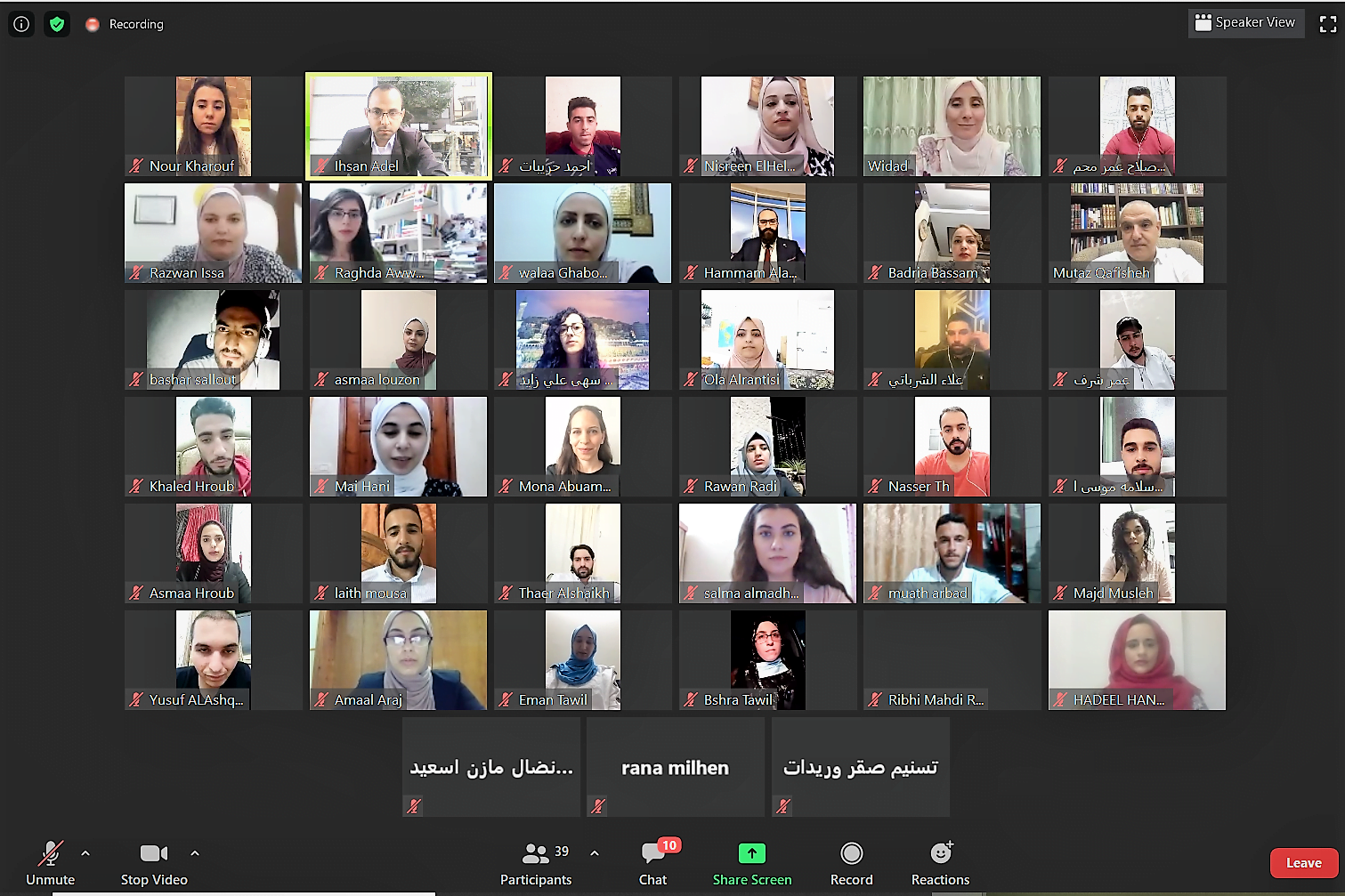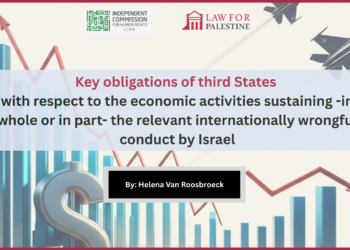Law for Palestine, based in the United Kingdom, concluded a training program entitled “Introduction to the International Criminal Court and the Palestinian case”, with the participation of 48 trainees; whom were lawyers, jurists, diplomats, and students from all over the world. The training program was held online from 25 – 28 / 9/2020 over 3 continuous training days, with 9 training hours, this training is considered as the first of its kind in the Arabic language.
The training came in light of the multiple challenges facing the Palestinian case- and still – in its thorny path before the International Criminal Court (ICC), as it aimed to spread the culture of international law, and the jurisdiction of the ICC, review the developments of the case of Palestine that is still pending in the court, and the expected prospects for the case. The training was designed for lawyers, human rights institutions, students, and graduates of political science, international relations, and law, in addition to employees of national authorities and agreements related to Palestine and the ICC, and individuals who work in non-governmental organizations and research centers in related disciplines.
On the first day, the meeting was opened by Ihsan Adel, chairman of Law for Palestine Organization, who in turn welcomed the attendees and indicated that this meeting is the first of its kind locally, regionally, and internationally, and stressed the need to enhance legal awareness and discussion on the case of Palestine and the International Criminal Court, noting that this program is nothing but an introduction to many specialized programs that come within the framework of the organization’s work to train those interested in international law to deal with the issues surrounding the case of Palestine in ICC, calling on the participants to follow up and take advantage of the International Criminal Law materials that are translated by the organization and published on its website. The website that represent very important references for all jurists and researchers interested in the issue of Palestine.
On the first training day, Thursday, Sep 24, 2020, Dr. Ahmed Khalifa, Assistant Professor of International Criminal Law in Egypt and an Expert in international humanitarian law at the International Committee of the Red Cross, discussed the establishment of the International Criminal Court in the context of seeking to achieve international criminal justice and the relationship between international criminal law, international humanitarian Law and human rights Law. Dr. Khalifa touched on the mechanisms of the court’s work, including its jurisdiction, acceptable provisions, the liability rules to which the court is judged under the Rome Statute, and finally the successes and challenges it has faced and the court is facing till now.

On the second training day, Saturday 26 Sep, titled “The Path of the Palestinian case at the ICC,” Ihsan Adel, founder and chairman of Law for Palestine and certified coach with distinction from the ICRC and the League of Arab States, spoke about the history and present of the case of Palestine before the ICC since 2009 until today, including the case of the Mavi Marmara ship that was filed by Comoros, then the recent referral that Palestine filed to the court in 2018 regarding the Palestinian territories, the case turns and its latest developments, including controversies and defenses that were submitted to the court regarding the case and the court’s public prosecution responses to it.
The third and last day was on Sep 27, 2020, with Dr. Moataz Qafisha, professor of international law, and one of those who presented a written observation before the ICC in the case of Palestine. He is a current and former legal advisor to several international bodies, who spoke about the challenges and prospects of the Palestinian case at the International Criminal Court (ICC). Dr. Qafisha discussed the most important arguments of the amicus curiae and the counter-arguments regarding the Palestine case before the court and reviewed the paper that he submitted to the court on behalf of the Palestinian Bar Association, which focused on the determinants of the Palestinian territory and the future expectations of the case. Finally, Qafisha touched on the issues or crimes that could be raised before the court regarding the case of Palestine, which needs more study and analysis.
At the end of the program, a photo was taken of the participants who emphasized the importance of such courses to raise their competencies and develop their capabilities in international law and provide them with knowledge of the mechanisms followed by the work of the ICC, to create real change in the international community.






